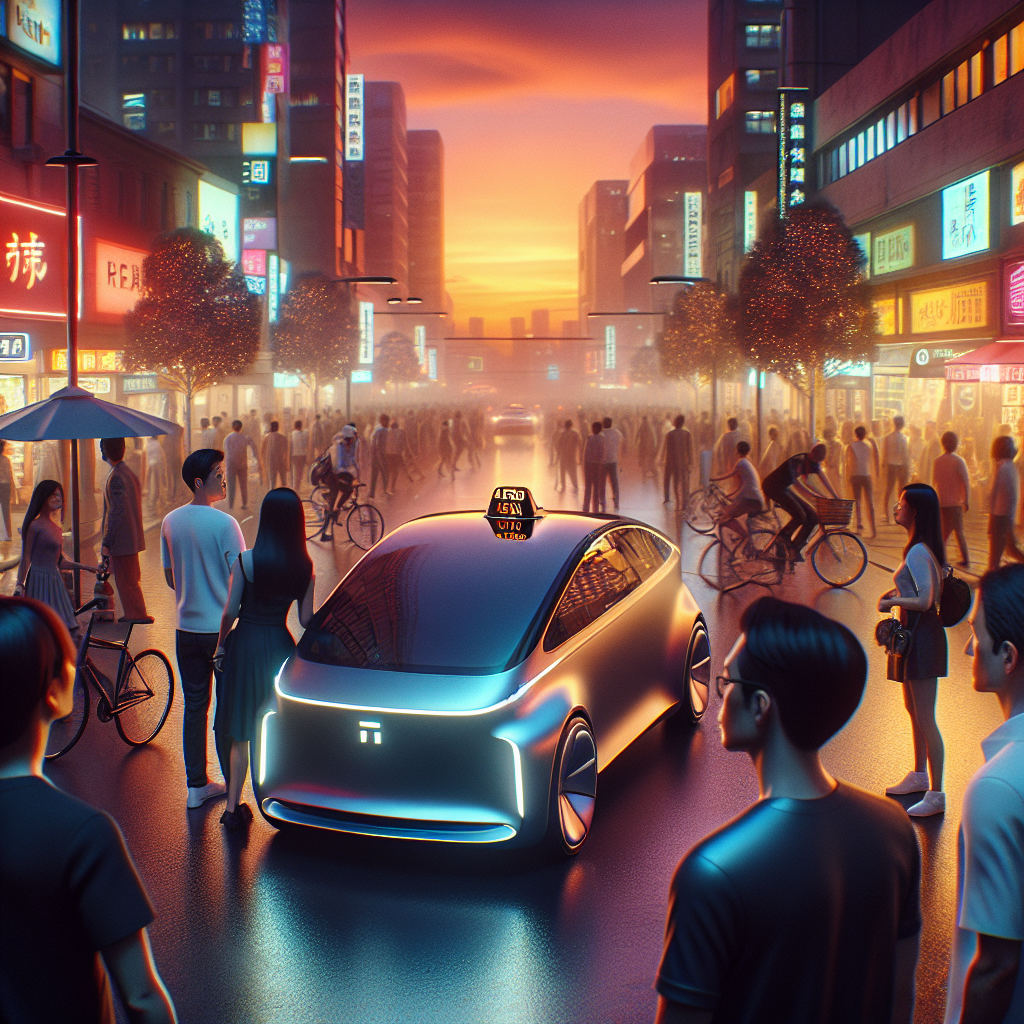The Hidden Truth About Consumer Trust in Tesla’s Robotaxi Launch
The Future of Transportation: Tesla Robotaxi and Consumer Perception
Introduction
Tesla has never shied away from ruffling the feathers of traditional automakers or consumer expectations. In its latest visionary pursuit, the Tesla Robotaxi aims to redefine urban mobility by championing an autonomous future where cars navigate our roads sans humans. This ambitious undertaking places Tesla at the cutting-edge intersection of technology and transportation, propelling its robotaxi into the limelight. However, this grand AI-powered vision faces a formidable barrier: consumer skepticism. While some hail it as the dawn of a new era in AI in Transportation, many echo doubts that stem from a lack of awareness and the specter of safety concerns, as highlighted in recent articles [^1^].
Background
Tesla’s robotaxi is not just a car; it’s a radical reimagining of what autonomous transportation could be. The significance of this project within the Autonomous Vehicles arena cannot be overstated. Autonomous vehicles, once the stuff of science fiction, have slowly permeated our transportation landscape, showcasing advancements in AI that drive them toward reality. Yet, previous attempts, like those by Google’s Waymo or Uber, have revealed the pitfalls and challenges of gaining consumer trust and regulatory approval.
Autonomous taxis promise convenience, reduced traffic, and less pollution. Yet, the road to broad acceptance remains fraught, as demonstrated by initiatives including Uber’s defunct autonomous division and the limited rollout of services by Waymo. This background sets the stage for Tesla’s grand gambit, which, if successful, could be the tipping point in consumer acceptance of such technologies.
Current Trends in Consumer Reactions
Tesla’s path forward is turbulent, as evidenced by survey data highlighting prevailing consumer sentiments about its robotaxi initiative [^1^]. A staggering 65% of consumers are oblivious to the Tesla Robotaxi launch, according to the Electric Vehicle Intelligence Report (EVIR). Of those informed, almost 50% expressed diminished interest following critical media scrutiny. This consumer disillusionment paints a grim picture, raising questions about the role of perceptions in technological adoption.
Despite the fanfare, Consumer Reactions remain stubbornly skeptical. Concerns about safety echo loudest, with 54% of survey respondents expressing distrust in robotics-driven vehicles [^1^]. It’s a classic case of the chicken or the egg: Does Tesla need a leap of faith from the masses, or is it up to the company to prove that AI in Transportation can safely govern the roads? Either way, understanding these reactions is crucial as they undoubtedly shape the trajectory of autonomous vehicles.
Insights from Industry Leaders
Even Tesla’s staunch supporters, including CEO Elon Musk, acknowledge the challenges ahead. Musk has paradoxically coined the platform a \”game-changer\” while also recognizing the extensive hurdles, notably safety and public distrust. The EVIR notes that skepticism is fueled by past incidents, media portrayals, and inherent differences between consumer expectations and current tech capabilities [^2^].
The media’s portrayal of Tesla’s robotaxi impacts public perception, drawing parallels to historical suspicion towards elevators—a now ubiquitous technology once viewed as perilous. Similarly, the challenge lies not just in technological validity but in convincing an apprehensive public that autonomous vehicles blend innovation with integrity.
Future Forecast for Tesla Robotaxi
Looking ahead, Tesla faces the dual task of persuasion and proof. The forecast for Tesla Robotaxi is hopeful yet contingent upon addressing safety concerns and captivating a majority still resistant to change. Over the next decade, autonomous vehicles could evolve to encompass enhanced safety protocols and enhanced public familiarity, possibly led by legislative shifts in favor of these technologies.
Competing technologies from Waymo, Baidu, Zoox, and May Mobility stand as contemporaries and competitors. They will likely spur innovation across the industry, accelerating the timeline for broader adoption and acceptance of robotic chauffeurs.
Call to Action
As autonomous vehicles wend their way into mainstream consciousness, the question remains: Will Tesla’s robotaxi gain the public’s trust, or is widespread adoption still miles away? Share your views on whether you’re ready to embrace this future of transportation without turning back.
For those captivated by this unfolding saga in AI in Transportation, consider subscribing for updates on the latest breakthroughs in autonomous technology or peruse related articles that delve deeper into consumer reactions and safety concerns in the robotaxi domain ^1^]. Links to relevant analyses are available [here.
—
[^1^]: https://www.wired.com/story/tesla-robotaxi-launch-survey-data/
[^2^]: Based on insights from Electric Vehicle Intelligence Report and Tesla’s communications on the project.







